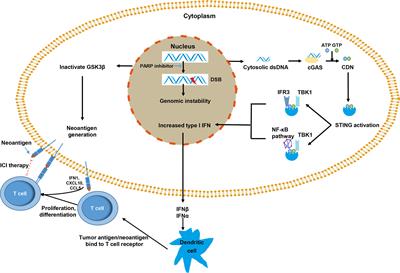EDITORIAL
Published on 27 Sep 2022
Editorial: The impact of the DNA damage response on anti-tumor immunity
doi 10.3389/fimmu.2022.1026194
- 1,057 views
- 1 citation
19k
Total downloads
52k
Total views and downloads
EDITORIAL
Published on 27 Sep 2022
ORIGINAL RESEARCH
Published on 10 Jan 2022

REVIEW
Published on 03 Jan 2022

REVIEW
Published on 12 Oct 2021

ORIGINAL RESEARCH
Published on 24 Sep 2021

ORIGINAL RESEARCH
Published on 18 Jun 2021

